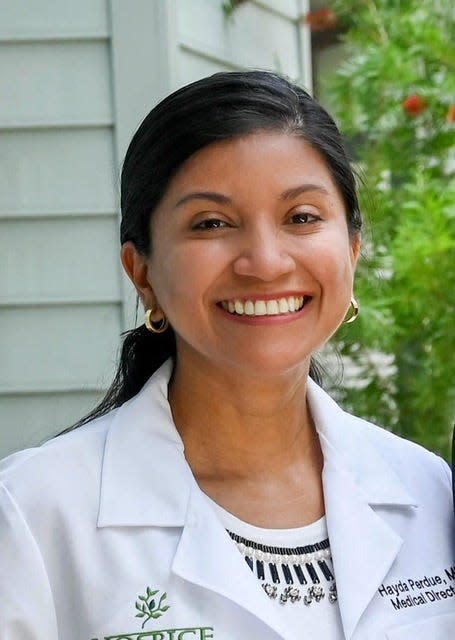Palliative care helps manage patients' symptoms and also focuses on quality of life
Palliative care may be the frontrunner for the title of most misunderstood branch of medical practice.
It is frequently confused with its “cousin” specialty, hospice care, perhaps because both specialties are focused on managing symptoms.
The difference is hospice care is end-of-life care that focuses on quality of life and comfort when a patient is no longer seeking active medical treatment. Palliative care, on the other hand, also focuses on quality of life, but many palliative care patients continue in active treatment.
You can see the family resemblance in the structure of Savannah’s only nonprofit hospice, Hospice Savannah. Under the same nonprofit corporate umbrella are the both the group’s inpatient and in-home hospice care, and the Steward Center for Palliative Care, which is the palliative care side of the group.
The Steward Center maintains separate offices in Candler Hospital’s Heart and Lung Building, across the street from the Nancy N. and J.C. Lewis Cancer and Research Pavilion. The location is significant. Many, but not all, of its palliative care patients are being treated for cancer. Other patients are being treated for serious, progressive illnesses like congestive heart failure, COPD (chronic obstructive pulmonary disease), kidney disease or dementia, among others.
“Breast cancer treatment has improved outcomes so dramatically that some patients may hear ‘palliative care’ and think of it in its older context, rather than as a supplement to successful care,” said Dr. Hayda Perdue, medical director for Hospice Savannah.

“We are meant to support the other doctors and make sure we are lessening the burden of suffering that comes from treatment," said Melissa Gaule, director of palliative care and provider management at the Steward Center.
“A breast cancer patient’s journey is going to be dependent on what kind of breast cancer they have," Gaule said. "They are going to have some side effects from treatment. Something that is really common is chemotherapy causing nausea. Our doctors are exclusively focused on your comfort, whereas your oncologist is focused on curing your cancer. Our doctors are the experts in coming up with other ways of dealing with symptoms."
Breast cancer patients face a complex array of symptoms to manage, Perdue said.
“Symptoms are not only physical (pain, nausea, etc.) but psychosocial," she said. "When you have a cancer diagnosis, your whole world changes. You not only worry about the disease, you also have concerns about your job, how your family will handle things while you are in treatment, and whether you will be able to afford your care. Palliative care sees patients as a whole, caring for the physical, spiritual, emotional and social aspects of care."
Gaule, who holds a master’s degree in bioethics and society from King’s College London, brings a unique perspective concerning breast cancer patients and their families. The Savannah native was only 6 years old when her single mother received a devastating diagnosis of Stage 4 metastatic breast cancer.
“This is how I came to palliative care. I remember sitting with her at chemotherapy and no one was asking how I was doing," she recalled. "She had a really great oncology team, but she didn’t have access to the right resources to help her navigate the things that were happening in her life. Palliative care, especially, was in its infancy in this country.”

Gaule thinks her mother’s concern for her helped her convert a predicted survival of four months into four years.
“We don’t want people to be afraid of palliative care because we know of the things they will miss,” she says. “I certainly don’t want people to experience what I did.”
Gaule points out that insurance payments dictate much of the evolution of healthcare in the U.S. Hospice care, for example, is covered by Medicare and most other insurance companies on a per diem (per day) rate. Palliative care, which is also covered by Medicare and most insurance, is covered per individual visit, subject to the same co-pays as a visit to any other specialist in the medical field.
“If you have cancer, you absolutely qualify for our services. It’s a real bummer when physicians wait to refer patients to us. We can aggressively manage symptoms and we also know to ask: 'Who helps you take care of your children after treatment days? Who’s fixing dinner when you get home?” Gaule says. “The worry that comes along with a cancer diagnosis alone is enough to warrant palliative care.”
Gaule says the Steward Center provides its services in various settings, focusing on “helping patients where they need to be treated.” For many, that is the outpatient clinic in their Candler-based offices, but the organization is also examining the possibility of seeing some patients at home on a case-by-case basis.
This article originally appeared on Augusta Chronicle: Palliative care treats patients symptoms while also considering quality
